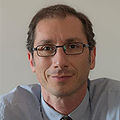Gruppo Interdivisionale Diffusione Cultura Chimica - The Board
SARA TORTORELLA (Coordinator)
saratortorella4@gmail.com - 0755855550 - Via Montelino 30, 06084, Perugia (IT)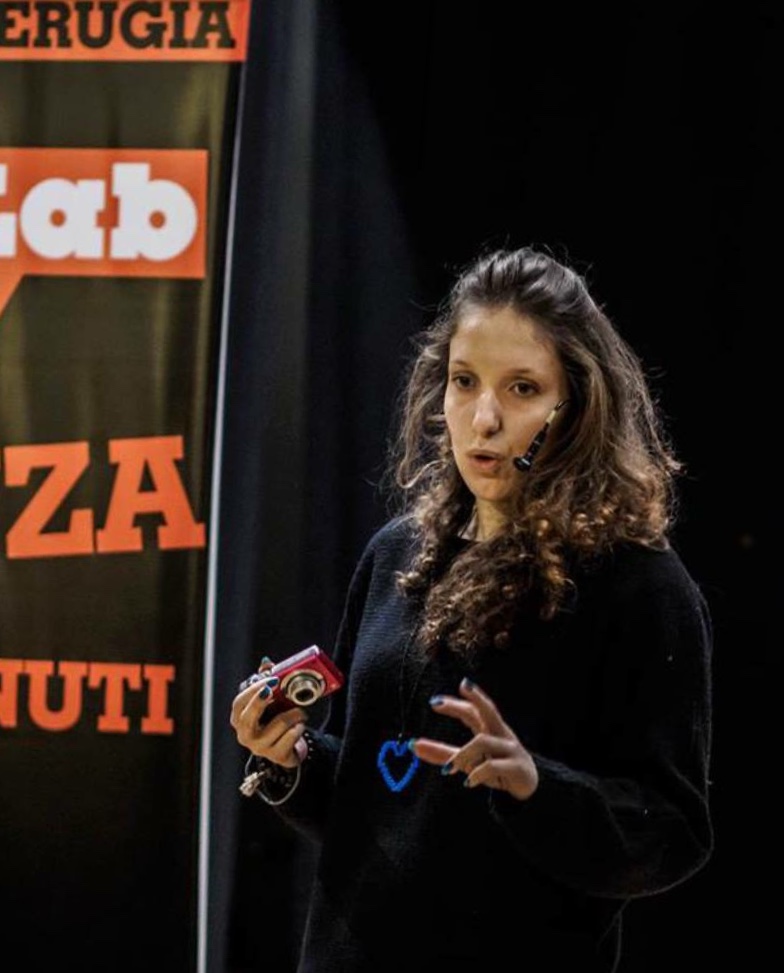 Sara Tortorella graduated in Chemistry at the University of Perugia (Italy) and in 2017 she received her PhD in Biotechnology – Biomaterials and Biodevices – in the group of Cheminformatics and Molecular Modeling led by Prof. Gabriele Cruciani. During her studies she worked abroad at Northwestern University (Chicago, US), University of York (York, UK), Barcelona Biomedical Research Park (Barcelona, Spain), and GlaxoSmithKline (Philadelphia, US). Her expertise is the use of chemometric and cheminformatic tools for material and drug optimization, molecular modeling, and lipidomics. Beside her research activity, Sara gained scientific communication and outreach skills from attending dedicated national and international schools and workshops, contests and from active collaborations with festivals, museums, and radio programs. She also contributed to education and career guidance activities for University of Perugia (Perugia, IT) and Pompeu Fabra University (Barcelona, ES). Currently, Sara is senior scientist at Molecular Horizon srl, an innovative start-up committed to developing software solutions and consulting in the fields of chemometrics, lipidomics, and drug design for oncological and metabolic diseases. In her free time, Sara is a swim coach, plays waterpolo and loves to engage general public with chemical science.
Sara Tortorella graduated in Chemistry at the University of Perugia (Italy) and in 2017 she received her PhD in Biotechnology – Biomaterials and Biodevices – in the group of Cheminformatics and Molecular Modeling led by Prof. Gabriele Cruciani. During her studies she worked abroad at Northwestern University (Chicago, US), University of York (York, UK), Barcelona Biomedical Research Park (Barcelona, Spain), and GlaxoSmithKline (Philadelphia, US). Her expertise is the use of chemometric and cheminformatic tools for material and drug optimization, molecular modeling, and lipidomics. Beside her research activity, Sara gained scientific communication and outreach skills from attending dedicated national and international schools and workshops, contests and from active collaborations with festivals, museums, and radio programs. She also contributed to education and career guidance activities for University of Perugia (Perugia, IT) and Pompeu Fabra University (Barcelona, ES). Currently, Sara is senior scientist at Molecular Horizon srl, an innovative start-up committed to developing software solutions and consulting in the fields of chemometrics, lipidomics, and drug design for oncological and metabolic diseases. In her free time, Sara is a swim coach, plays waterpolo and loves to engage general public with chemical science.
As coordinator of the "Diffusione della Cultura Chimica" (Dissemination of Chemical Culture) group of the Società Chimica Italiana (Italian Chemical Society) she aims to promote and encourage outreach and public engagement activities to trigger general public curiosity and foster trust in the essential role of chemistry in our society.
STEFANO CINTI
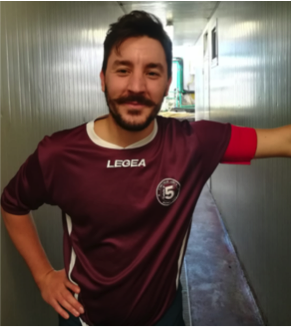 Stefano Cinti is a post-doc fellow at Department of Chemical Science and Technology (Analytical Chemistry), University of Rome “Tor Vergata” in the group headed by Prof. Giuseppe Palleschi. He obtained a PhD in Chemical Sciences in 2016. During his studies, Stefano had the opportunity in spending several months abroad, i.e. Finland (Oulu), USA (San Diego, Santa Barbara), England (Bristol), Germany (Chemnitz). His research interests include the development of Electrochemical sensors, Paper-Based devices, Nanomotors, and Nanomaterials. He has been granted by EU with a MSCA fellowship, and from January 2019 he will work in the laboratory headed by Prof. Arben Merkoci at ICN2 (Barcelona, Spain).
Stefano Cinti is a post-doc fellow at Department of Chemical Science and Technology (Analytical Chemistry), University of Rome “Tor Vergata” in the group headed by Prof. Giuseppe Palleschi. He obtained a PhD in Chemical Sciences in 2016. During his studies, Stefano had the opportunity in spending several months abroad, i.e. Finland (Oulu), USA (San Diego, Santa Barbara), England (Bristol), Germany (Chemnitz). His research interests include the development of Electrochemical sensors, Paper-Based devices, Nanomotors, and Nanomaterials. He has been granted by EU with a MSCA fellowship, and from January 2019 he will work in the laboratory headed by Prof. Arben Merkoci at ICN2 (Barcelona, Spain).
He loves to communicate how chemistry is beautiful and important to general audience. He is a member of the board of the "Diffusione della Cultura Chimica" (Dissemination of Chemical Culture) group and of the “Gruppo Giovani” (Young Group) of the Società Chimica Italiana (Italian Chemical Society). Among his interests, he likes to read, to write chemical essays, and to play/coach futsal.
VALERIA COSTANTINO
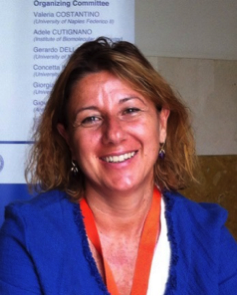 Valeria Costantino, PhD in Chemistry of Natural Products, is professor of Organic chemistry and Chemistry of Natural products at the Department of Pharmacy of the University “Federico II” of Naples, since 2004. She loves Nature and Chemistry at the same manner and loves diving and climbing as well as working in the lab with her collaborators. Valeria’s research is part of the emergent topic called Bluegrowth and focuses on exploring the unique natural products of marine sponges and cyanobacteria as lead compound for pharmacological applications in the areas of cancer, and infectious disease. More recently, the BlueChemistry Lab group has also applied the chemical knowledge to explore the QS system in bacteria symbiotic with sponges with the goal to develop novel leads in antibacterial drug discovery in collaboration with the group of Dr. L. Steindler (University of Haifa). Additionally, Valeria personally collects marine samples in Bahamas, Florida, and Mediterranean Sea and grows cyanobacteria sampled in marine and fresh water in the laboratory in Naples, at the Department of Pharmacy. She is author of 83 publications in peer-reviewed journals, more than 70 conference communications, 2 book chapters. She is the President of the Scientific Committee of the International Summer School on Natural Products and member of the Committee of the "Spring School on Transferable Skills" for PhD students of the University of Naples.
Valeria Costantino, PhD in Chemistry of Natural Products, is professor of Organic chemistry and Chemistry of Natural products at the Department of Pharmacy of the University “Federico II” of Naples, since 2004. She loves Nature and Chemistry at the same manner and loves diving and climbing as well as working in the lab with her collaborators. Valeria’s research is part of the emergent topic called Bluegrowth and focuses on exploring the unique natural products of marine sponges and cyanobacteria as lead compound for pharmacological applications in the areas of cancer, and infectious disease. More recently, the BlueChemistry Lab group has also applied the chemical knowledge to explore the QS system in bacteria symbiotic with sponges with the goal to develop novel leads in antibacterial drug discovery in collaboration with the group of Dr. L. Steindler (University of Haifa). Additionally, Valeria personally collects marine samples in Bahamas, Florida, and Mediterranean Sea and grows cyanobacteria sampled in marine and fresh water in the laboratory in Naples, at the Department of Pharmacy. She is author of 83 publications in peer-reviewed journals, more than 70 conference communications, 2 book chapters. She is the President of the Scientific Committee of the International Summer School on Natural Products and member of the Committee of the "Spring School on Transferable Skills" for PhD students of the University of Naples.
In addition to her research activity, Valeria likes to talk with people and work in projects in which schools students are involved: she is the coordinator of two projects dedicate to school students: "It's Just Water", lab experiences for primary schools pupils and a series of dissemination talks entitled "Alla Corte Young".
ADRIANO INTISO
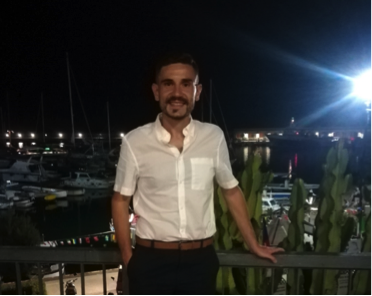 Adriano Intiso got the MSc in Chemistry in 2014 at University of Salerno and in same university in 2018 he received the PhD in Chemistry in the group of Environmental Chemistry under the supervision of Prof. Federico Rossi. His main research activity is focused on the development of an integrated strategy for the remediation of soils and water polluted by chlorinated volatile organic compounds (Cl-VOCs), in particular trichloroethylene (TCE). Moreover, he spent six months as visiting student at the Instituto de Tecnología Química, Universitat Politècnica de València-CSIC (ITQ-UPV), where he continued his research in the field of catalytic degradation of gaseous Cl-VOCs using zeolites and other green materials. His expertise is the use of all the analytical techniques, especially for environmental applications. Actually he is working as technical and environmental consultant for the companies. In his free time, Adriano is a scout leader (11-16 years old), love sports, in particular play football and gym, and he is a supporter of Salernitana football Club.
Adriano Intiso got the MSc in Chemistry in 2014 at University of Salerno and in same university in 2018 he received the PhD in Chemistry in the group of Environmental Chemistry under the supervision of Prof. Federico Rossi. His main research activity is focused on the development of an integrated strategy for the remediation of soils and water polluted by chlorinated volatile organic compounds (Cl-VOCs), in particular trichloroethylene (TCE). Moreover, he spent six months as visiting student at the Instituto de Tecnología Química, Universitat Politècnica de València-CSIC (ITQ-UPV), where he continued his research in the field of catalytic degradation of gaseous Cl-VOCs using zeolites and other green materials. His expertise is the use of all the analytical techniques, especially for environmental applications. Actually he is working as technical and environmental consultant for the companies. In his free time, Adriano is a scout leader (11-16 years old), love sports, in particular play football and gym, and he is a supporter of Salernitana football Club.
In addition he is member of the "Diffusione della Cultura Chimica" (Dissemination of Chemical Culture) group of the Società Chimica Italiana (Italian Chemical Society); his personal aim for this 3-years activity in SCI is to create a functional network between companies and universities in order to build a bridge among these two realities.
ELENA LENCI
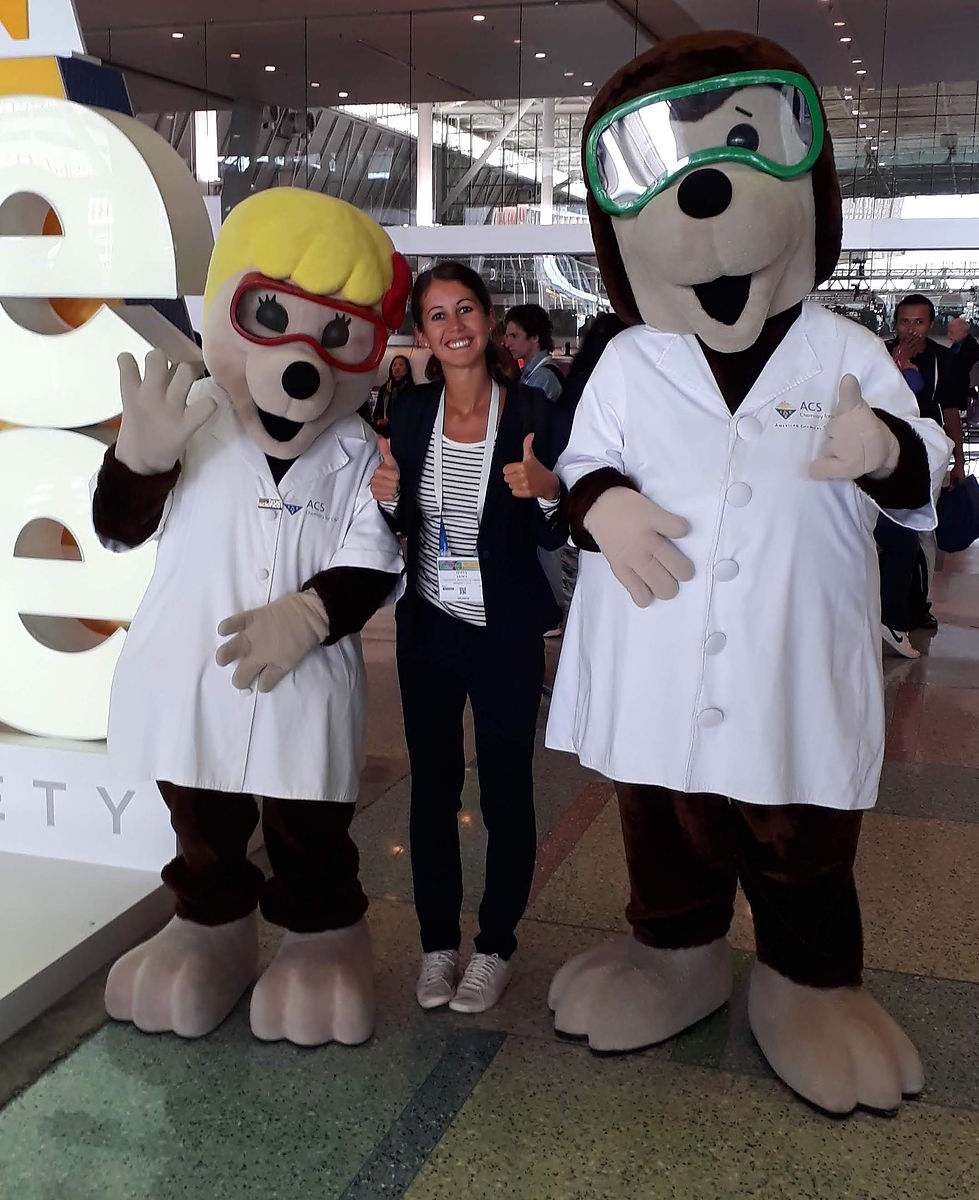 Elena Lenci is a postdoctoral research fellow at the University of Florence. Her main research activity is focused on novel synthesis of amino acid- and sugar-derived molecular scaffolds, and their applications to medicinal chemistry projects. Besides her work in organic chemistry, she is interested in teaching and learning chemistry at all levels, including pedagogical methods and related research. Since 2016 she is a board-member in the “Gruppo Giovani” (Young Group) of the Società Chimica Italiana (Italian Chemical Society), representing the division of “Didattica della Chimica” (Chemical Education), where she works to improve the interaction between school and university and to promote the importance of teaching chemistry in the high school.
Elena Lenci is a postdoctoral research fellow at the University of Florence. Her main research activity is focused on novel synthesis of amino acid- and sugar-derived molecular scaffolds, and their applications to medicinal chemistry projects. Besides her work in organic chemistry, she is interested in teaching and learning chemistry at all levels, including pedagogical methods and related research. Since 2016 she is a board-member in the “Gruppo Giovani” (Young Group) of the Società Chimica Italiana (Italian Chemical Society), representing the division of “Didattica della Chimica” (Chemical Education), where she works to improve the interaction between school and university and to promote the importance of teaching chemistry in the high school.
For this 3-years activity in the "Diffusione della Cultura Chimica" (Dissemination of Chemical Culture) group she would like to support the efforts and the voice of all the Italian chemists involved in dissemination activities, also in an institutional way, acknowledging how important is communicating science to the public to fight scientific misinformation.
ALBERTO ZANELLI
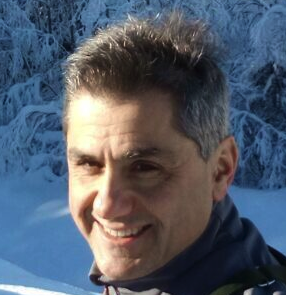 Alberto Zanelli is graduated in chemistry at Bologna's University and has master degree in analytical chemistry. From 1993 to 1998 he was a fellow at Bologna's University involved in the project "Lithium Polymer Batteries for Electric Vehicles" then, from 1998 to 1999, he was senior researcher in the EU Joule project "SuperCapacitors Of Power and Energy" (SCOPE). In 2000 and 2001 he was industrial hygienist at the Italian institute for workers insurance and held a university course on work safety and health. Finally, since 2002, he is full researcher at the Institute for Organic Synthesis and Photoreactiviy of the Italian National Research Council where he managed researches on organic materials for electronics, ethanol sensing in gasoline, and advanced oxidation processes for water remediation.
Alberto Zanelli is graduated in chemistry at Bologna's University and has master degree in analytical chemistry. From 1993 to 1998 he was a fellow at Bologna's University involved in the project "Lithium Polymer Batteries for Electric Vehicles" then, from 1998 to 1999, he was senior researcher in the EU Joule project "SuperCapacitors Of Power and Energy" (SCOPE). In 2000 and 2001 he was industrial hygienist at the Italian institute for workers insurance and held a university course on work safety and health. Finally, since 2002, he is full researcher at the Institute for Organic Synthesis and Photoreactiviy of the Italian National Research Council where he managed researches on organic materials for electronics, ethanol sensing in gasoline, and advanced oxidation processes for water remediation.
Actually, he is involved in some projects devoted to wide learning society entitled: "The research language", "E-minig@School", "Green Innovation" and "Raw Matters Ambassadors at Schools" where has the role of "raw material ambassador". He is author of about 70 papers on international journals, a chapter in three books and many contribution to international congresses and national journals.
GIANLUCA FARINOLA
